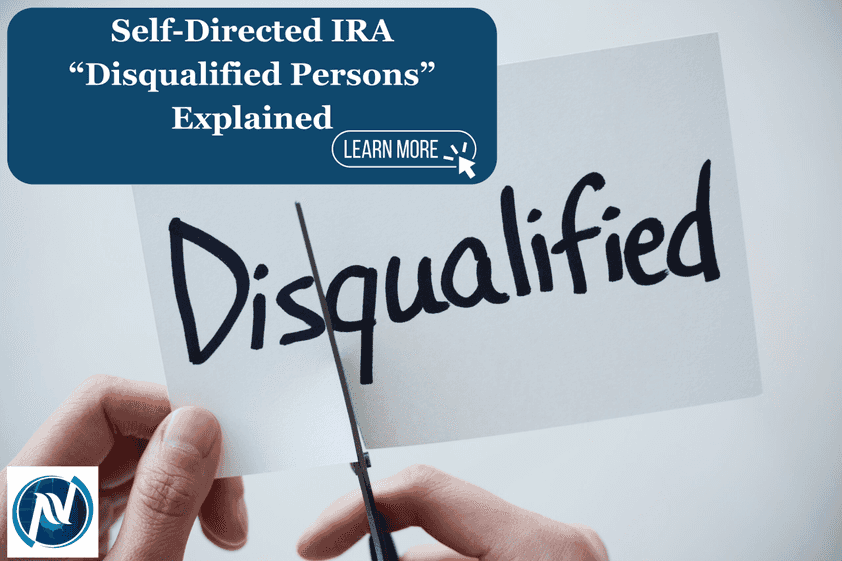Self-Directed IRA “Disqualified Persons” Explained
Maybe you already know that Self-Directed IRAs offer you all sorts of retirement investing freedom. And that’s great if you want to invest in real estate, precious metals, and other alternative asset classes using, say, a Roth IRA. But what is this pesky phrase “disqualified persons” you keep hearing, and what does it mean for …

Maybe you already know that Self-Directed IRAs offer you all sorts of retirement investing freedom. And that’s great if you want to invest in real estate, precious metals, and other alternative asset classes using, say, a Roth IRA. But what is this pesky phrase “disqualified persons” you keep hearing, and what does it mean for the types of investments you can and can’t make? Here’s a guide to disqualified persons—who they are, what it means for your retirement, and how you can avoid breaking this rule as you invest.
What Are Disqualified Persons in a Self-Directed IRA?
Disqualified persons are individuals or entities with whom your Self-Directed IRA is prohibited from transacting. You can’t sell a piece of real estate in an IRA, for example, to your sister. Essentially, the IRS doesn’t want you using your retirement account in ways that provide immediate personal benefit. This means certain transactions and relationships are off-limits (even if they seem logical at first glance). That’s why understanding who qualifies as a disqualified person is key to keeping your IRA in compliance with IRS rules.
Who Counts as a Disqualified Person?
The IRS has a specific list of disqualified persons, and it’s essential to know who falls into this category. Here’s a quick breakdown:
What Transactions Are Prohibited?
When it comes to Self-Directed IRAs, the IRS has strict rules against certain types of transactions with disqualified persons. For example, you’ll have to avoid self-dealing, which refers to using your IRA to purchase assets you already own or may benefit from. No buying your own home with a Self-Directed IRA. Other types of transactions, like loans or leasing, are similarly prohibited.
Why These Rules Matter
The IRS enforces these rules to ensure that retirement accounts remain focused on future financial growth. They shouldn’t be for immediate personal gain. Breaking the rules can result in big-time penalties. These might include the disqualification of your IRA, the immediate taxation of the entire account, and even additional penalties for early withdrawals.
How to Avoid Issues with Disqualified Persons
Navigating these rules might sound tricky, but with the right strategy, you can ensure that your investments stay on track. Here are some tips:
Self-Directed IRAs open the door to unparalleled investing freedom, true. But as Uncle Ben once told Spider-Man, that power comes responsibility. Understanding the concept of disqualified persons and prohibited transactions is critical to maintain your IRA’s tax-advantaged status. To learn more about what that means, reach out to us by dialing 866-7500-IRA.
Get 15 minutes of free expert advice.
If you're not sure whether a self-directed IRA is right for you, schedule a 15-minute call with our industry veteran team. We'll explain the possibilities, help you evaluate your options, and answer all your questions - no pressure, no obligations.
